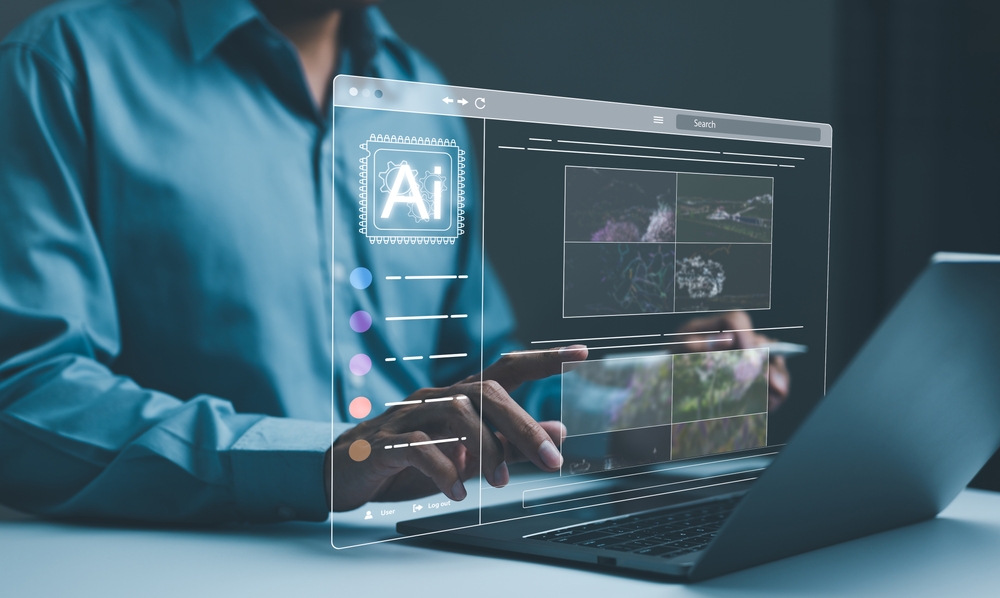Every generation has benefitted from the rise of transformative technology: the steam engine, electricity, the combustion engine, the computer, and the internet. Artificial intelligence is our generation’s transformative technology, poised to supercharge productivity and innovation for decades to come. In fact, McKinsey’s research suggests GenAI is projected to boost global GDP by up to $4.4 trillion annually, a larger economic impact than the personal computer and the internet combined.
No other technology will accelerate economic growth and bolster U.S. competitiveness faster, which is why states like New York must seize this moment to build a future where AI technology and human capabilities thrive together. We now need to move beyond seeing AI as merely new and interesting, and also focus on widespread deployment. For those familiar with traditional innovation cycles, it is in this stage when we start to see some real, tangible benefits.
More than just a technological leap, AI is the ultimate productivity booster. Its potential to significantly benefit, not threaten, workers is unmatched. AI can help us work smarter and enhance, rather than replace, the talents that make our workforce run. Workers now have a powerful new partner for collaboration. Leveraging AI capabilities can help an executive assistant automate routine tasks, developers code faster, and make research more accessible.
New York can help make this bright future possible by embracing its role as a global hub for innovation and building the foundation for responsible AI today. A foundation built on the right mix of equity, skills, innovation, and scale.
First, equity. Accessibility must be at the forefront if New York is to fulfill its potential as a global leader in AI. The state must empower all New Yorkers to equitably access the benefits of AI. Everyone deserves access to AI tools that are free from discrimination and bias, tools that genuinely improve lives.
AI reflects our patterns and biases; therefore, our AI workforce should represent our diverse communities. New York has seen waves of technological innovations, and while many have flourished, the broader impact, especially for the most marginalized people, has often been an afterthought. We have an opportunity with AI to think and do differently. The workers most often left behind can and should be positioned as co-creators, rather than collateral.
Second, skills. The half-life of skills has shrunk from 30 years to just seven. That means that during an average career, a worker’s overall skills will change five times. Continuous learning is no longer optional. Research shows that those who learn basic AI skills now can boost their salaries by 25%.
New York State must foster a resilient workforce that adapts and thrives in the evolving AI economy. That’s why we are excited to work with leaders across sectors to explore possibilities like developing digital skills training programs, fostering partnerships between tech companies and educational institutions, and funding public-private initiatives that support workforce training.
Third, innovation. New York must create the nation’s leading ecosystem for nurturing AI innovation. With its powerful industries, tech giants, startups, and prestigious academic institutions, the state is positioned to be the perfect incubator for developing policies and programs for a thriving AI workforce.
Finally, scale. Despite the clear advantages of AI, only 40% of organizations have actively deployed it, while an additional 40% are still exploring uses of the technology. New York businesses and nonprofits can take the lead by focusing on a few meaningful projects where AI can have the greatest impact now — like IT automation, digital labor, and customer experience — and then scaling those throughout their organizations.
But you can’t scale AI unless you trust it. That’s why we must also address data quality and risk controls. Trusted AI requires governance tools, regulatory standards, and built-in safeguards to ensure that models don’t run adrift.
Gov. Hochul’s launch of the Emerging Technology Advisory Board, which we co-chair, is a significant step forward in addressing these four success factors. Along with leaders from finance, labor, philanthropy, venture capital, technology, and other industries, we have been tasked to help grow the AI ecosystem in New York responsibly, embracing diverse education, recruitment, and hiring.
We aim to provide the state with recommendations for deploying open, trustworthy, and responsible AI at scale, ensuring the workforce is resilient and ready to seize new opportunities.
We believe that where New York leads, the rest of the country follows. By embracing AI and integrating it into our workforce, we can set a powerful example of how technology can be a force for good.
Krishna is chairman and CEO of IBM. Barrett is CEO of Girls Who Code.
